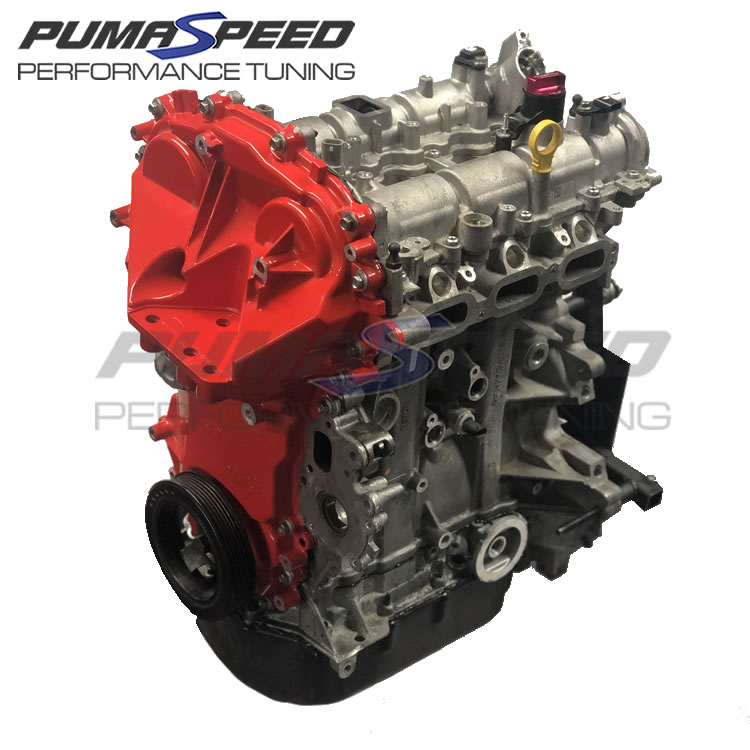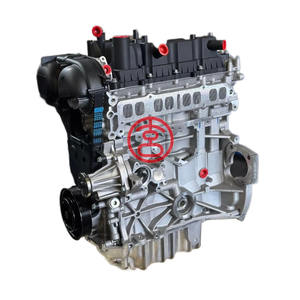How a Well-Maintained Ford Fiesta Engine Improves Vehicle Longevity
How a Well-Maintained Ford Fiesta Engine Improves Vehicle Longevity
Blog Article
The Future of Engines: Innovations Driving Sustainable Power Solutions
As the vehicle sector browses the necessary shift in the direction of sustainability, the future of engines is progressively specified by groundbreaking technologies. Electric engine developments, together with appealing growths in hydrogen fuel cells and biofuels, are improving the landscape of power remedies. The appearance of crossbreed systems even more complicates this evolution, providing both opportunities and obstacles to decrease emissions effectively. Combined with the integration of synthetic intelligence in engine design, these technological strides raise crucial questions about their long-term stability and influence on traditional paradigms. What might this suggest for the market and customers alike?
Electric Engine Dope
The evolution of electric engine growths indicates a critical shift in the aerospace and vehicle markets, driven by the urgent requirement for sustainable alternatives to nonrenewable fuel sources. This transition is characterized by significant advancements in battery technology, power electronics, and electrical motor layout, which jointly boost the efficiency and efficiency of electrical engines.
Current technologies have actually brought about the development of lighter, a lot more energy-dense batteries, such as lithium-silicon and solid-state batteries, which guarantee longer ranges and shorter billing times. Furthermore, renovations in electric motor efficiency, such as making use of permanent magnets and advanced cooling down systems, make it possible for electrical engines to operate successfully under differing problems. These improvements not just boost automobile efficiency but additionally add to a decrease in general energy intake.
Additionally, the combination of sophisticated software formulas has maximized power administration in electric lorries, enabling regenerative stopping and predictive billing approaches. As producers increasingly welcome electric propulsion, the aerospace and automotive fields are observing a standard change towards greener technologies. This development not only fulfills regulatory needs but likewise straightens with consumer choices for eco-friendly transportation options, solidifying electrical engines as a foundation of future sustainable movement.
Developments in Biofuels
As the automotive and aerospace markets progressively focus on sustainable power sources, developments in biofuels become a complementary remedy to electric engines. Biofuels, acquired from natural products such as crops, waste, and algae, offer a cutting-edge opportunity for reducing greenhouse gas exhausts and dependence on nonrenewable fuel sources.
Current study has concentrated on enhancing the efficiency and sustainability of biofuel production. Second-generation biofuels utilize non-food feedstocks, decreasing competitors with food supply and minimizing environmental effect. Developments in artificial biology have actually allowed the design of microbes to produce biofuels much more efficiently, leading to higher returns and reduced manufacturing expenses.
Furthermore, the advancement of drop-in biofuels permits seamless integration into existing infrastructure, enabling a smoother change for sectors generally reliant on fossil gas. ford fiesta engine. These gas can be utilized in current engines without modifications, promoting their fostering throughout various markets
Investments in biofuel innovation, together with supportive policies, are important to drive innovation and scalability. As the international area looks for to battle environment change, biofuels provide a pragmatic, prompt remedy that straightens with the overarching goal of sustainability in transportation and air travel.
Hydrogen Gas Cell Innovation
A growing number of firms and scientists are exploring hydrogen fuel cell innovation as a viable alternative to conventional power sources in transport and energy systems. This modern technology transforms chemical power from hydrogen into electricity via an electrochemical reaction, with water as the only result, making it an eco-friendly choice.
The core of hydrogen gas cells is the fuel cell pile, where hydrogen particles are split right into electrons and protons. The flow of electrons produces electricity, while protons move via a membrane to integrate with oxygen from the air, creating water. This process leads to high efficiency and low exhausts, positioning hydrogen gas cells as a crucial player in the change to sustainable energy.
Substantial developments have actually been made in boosting the sturdiness and performance of fuel cells, together with lowering costs with innovative production methods. The growth of hydrogen manufacturing methods, such as electrolysis powered by sustainable power sources, boosts the sustainability of the overall system. As infrastructure for hydrogen refueling expands and manufacturing approaches become more reliable, hydrogen fuel cell modern technology holds terrific assurance for decarbonizing different markets, including heavy-duty transportation and fixed power generation.
Hybrid Systems and Their Impact
Crossbreed systems stand for a considerable evolution in sustainable engine modern technology, combining conventional inner combustion engines with electric propulsion to optimize energy effectiveness and decrease discharges (ford fiesta engine). This dual method enables cars to make use of both power sources, making it possible for higher flexibility in energy intake and lowering reliance on fossil fuels

In addition to ecological advantages, crossbreed systems offer customers a sensible change in the direction of totally electric vehicles. They minimize range anxiety by combining the comfort of fuel with the benefits of electric company website propulsion, making them an eye-catching alternative for a bigger audience.
The Function of AI in Engine Design
Leveraging advanced formulas and artificial intelligence techniques, the vehicle industry is progressively incorporating fabricated intelligence (AI) right into engine style procedures. AI improves the efficiency and effectiveness of layout by analyzing huge datasets to identify ideal setups and efficiency parameters. This capability enables engineers to imitate various operating conditions and anticipate engine behavior under several situations, significantly reducing the moment and price related to traditional prototyping approaches.
Additionally, AI promotes the development of advanced materials and combustion procedures tailored for sustainability. By enhancing gas performance and lessening emissions, AI-driven styles straighten with global initiatives targeted at minimizing the carbon impact of vehicle engines. Equipment discovering formulas can likewise predict maintenance demands, causing improved sites integrity and long life of engine parts.
In Addition, AI is instrumental in the integration of electrification innovations, such as hybrid systems, where it can enhance battery management and power recovery processes. As the market moves towards even more sustainable power remedies, the duty of AI in engine layout ends up being significantly important, driving innovation and enhancing the performance of future engines. Inevitably, the partnership between AI and engine layout heralds a new period of smarter, cleaner, and extra efficient auto technologies.

Conclusion
In conclusion, the future of engines is being shaped by a merging of cutting-edge innovations that focus on sustainability. Electric engine innovations, biofuel advancements, hydrogen fuel cells, and hybrid systems collectively add to a significant decrease in exhausts and ecological impact. In addition, the combination of fabricated knowledge in engine style improves effectiveness and performance. These transformative options highlight a commitment to producing a cleaner, much more lasting automotive landscape, ultimately benefiting both culture and the environment. discover this info here
Electric engine developments, together with encouraging developments in hydrogen fuel cells and biofuels, are reshaping the landscape of power solutions. In addition, renovations in electric motor effectiveness, such as the usage of permanent magnets and advanced cooling systems, make it possible for electric engines to run effectively under differing conditions. By optimizing fuel effectiveness and decreasing emissions, AI-driven layouts line up with worldwide efforts intended at lowering the carbon impact of auto engines. As the sector moves in the direction of even more sustainable power remedies, the duty of AI in engine style ends up being increasingly crucial, driving innovation and enhancing the performance of future engines. Electric engine advancements, biofuel advancements, hydrogen gas cells, and crossbreed systems jointly contribute to a considerable reduction in exhausts and ecological impact.
Report this page